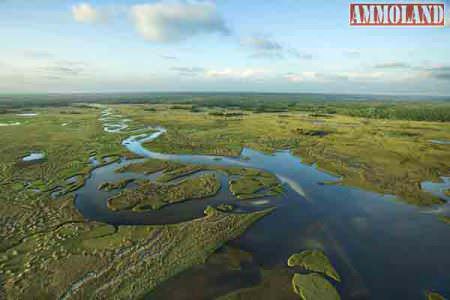

WASHINGTON, D.C. –-(Ammoland.com)- The U.S. House of Representatives has passed the Water Resources Development Act of 2016 (WRDA), which matches Senate-passed provisions to jumpstart much-needed restoration of Everglades fisheries and water quality improvements across the country through strategic use of wetlands, reefs, and other natural infrastructure.
The bipartisan bill would authorize $5 billion in water projects overseen by the U.S. Army Corps of Engineers, including $1.9 billion for the Central Everglades Planning Project, which would fast-track efforts to restore natural water flows, remove pollutants, and reverse algae blooms and other conditions devastating South Florida’s fisheries.
“The sportfishing industry recognizes that it is vital for the Florida Everglades to receive funding as soon as possible to expedite the implementation of multi-year projects that will help fix the water quality and water management challenges that plague south Florida,” says Scott Gudes, vice president of government affairs with the American Sportfishing Association. “These projects have been through an extensive review process and will provide significant environmental benefits by moving more water south from Lake Okeechobee. However, Congressional authorization is required before construction can begin.”
The House bill would also emphasize the use of nature-based infrastructure—like wetlands, dunes, and reefs—over new man-made structures to reduce flood and storm damage, improve water quality, and protect vital fish and wildlife habitat in the process. This provision, which sportsmen have been calling for since June 2016, was added as an amendment after a strongly bipartisan voice vote.
Similar provisions in the Senate version of WRDA, which passed 95-3 on September 15, would clear a path toward making these conservation measures happen. The two bills will need to be conferenced, with any differences hammered out, before legislation can go to the president’s desk.
“It should be encouraging to sportsmen that Congress is making definitive moves to advance important conservation measures with major impacts for fish, wildlife, and water quality at a time when they are tasked with so much,” says Steve Kline, director of government relations with the Theodore Roosevelt Conservation Partnership. “There will be as much, or more, competing for lawmakers’ attention going into a conference on these bills, but there is no time to lose when it comes to reversing destruction in Florida’s fisheries or prioritizing projects that have mutual benefits for habitat and infrastructure.”
